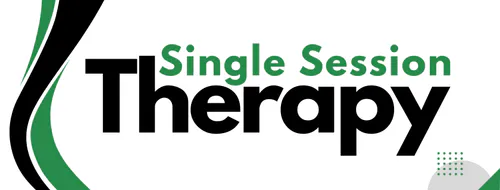SINGLE SESSION THERAPY in PRACTICE | In-house Training
- Friday 1 January 2027
- 1:02 am - 1:02 am
- Your location
| CPD Hrs | 7.5 |
|---|---|
| Includes | Handbook and certificate |
In-house training: We can arrange training at your organisation. Email us.
Embedding Single Session Therapy in Practice
Dive into the transformative practice of Single Session Therapy (SST). Grounded in evidence-based methods like Solution-Focused Brief Therapy (SFBT), Cognitive Behavioural Therapy, and Motivational Interviewing, SST empowers participants to make meaningful progress in just one session by building on their strengths and turning goals into actionable steps. Drawing from Moshe Talmon’s foundational work that nearly 60 % of clients reported meaningful improvement after just one session, this workshop equips you to confidently deliver a powerful, time-efficient therapeutic encounter. SST is not a 'one-size-fits-all' model, but a flexible mindset that complements systemic, trauma-informed, and solution-focused approaches. It is recognised in clinical frameworks as a valid early intervention strategy. Its use is supported by the principles of stepped care, and it is increasingly incorporated into digital, school-based, and brief intervention models.
Learning Objectives
- Definition and Key Principles of SST
- Understand the foundations and mindset of Single Session Thinking (SST)
- Explore SST’s application across various contexts, innovative practices and opportunities to assist people imminently.
- Identify tools and techniques that enhance relational, trauma-informed practice in single contacts
- Reflect on opportunities to embed SST principles into their own roles and services
Outcomes
- Efficient access: Addresses long waitlists and staffing constraints by maximizing the impact of each session
- Effectiveness: Client focused, goal orientated conversations, clear client contracting
- Adaptable model: Useful in emergency/crisis settings, walk‑in clinics, public health, and coaching. Flexible alignment with client needs, cultural context, and readiness
Workshop Schedule
1. What is Single Session Thinking?
- Definition and key principles of SST
- Historical context
- Core values: every session counts, collaboration, client-led goals
- Research overview
- Application in CAMHS, primary mental health, OOHC and trauma-informed practice
- Clinical guidelines: best practice in collaborative contracting, reflection, and stepped care alignment
2. SST in CAMHS & Primary Mental Health
- CAMHS example: responding to waitlists, demand, and burnout (redesign model)
- Transformational impact of SST: improving access, staff morale, and client agency
- Real-life example/video vignettes
- SST in youth and school settings: engaging young people and families early
3. Tools & Techniques in SST
- Grounding questions and narrative/solution-focused techniques
- Mapping what’s working and what the person wants more of
- SST with carers: validation, regulation, reframing
- Skills practice
4. Embedding SST in Your Role or Team
- Translating learning into practice
- Implementation examples from suicide prevention, school/community teams, and complex care
- Barriers and enablers
- Plan – 'What could a micro-pilot look like in your setting?'
5. Reflections & Next Steps
Join us for a day of experiential learning and skill-building, designed to empower helping professionals to deliver fast, focused change, even when time is limited.
Audience: for mental health, education and other professionals that apply behavioural/developmental/neuro-science and systemic thinking to their practice.
Mental Health Professionals: All mental health professionals including, but not limited to Clinical Counsellors, Psychologists, Psychotherapists, Psychiatrists, Social Workers, Nurses, Occupational Therapists, Hospice and Palliative Care Workers, Youth Workers, Mental Health Workers, Addiction Specialists, Marital & Family Therapists, Child Protection and Disability Workers, Guidance Officers, Speech and Language Therapists, Residential Care Workers and Foster Support Workers, Youth Justice, and all other mental health professionals looking to enhance their therapeutic skills.









